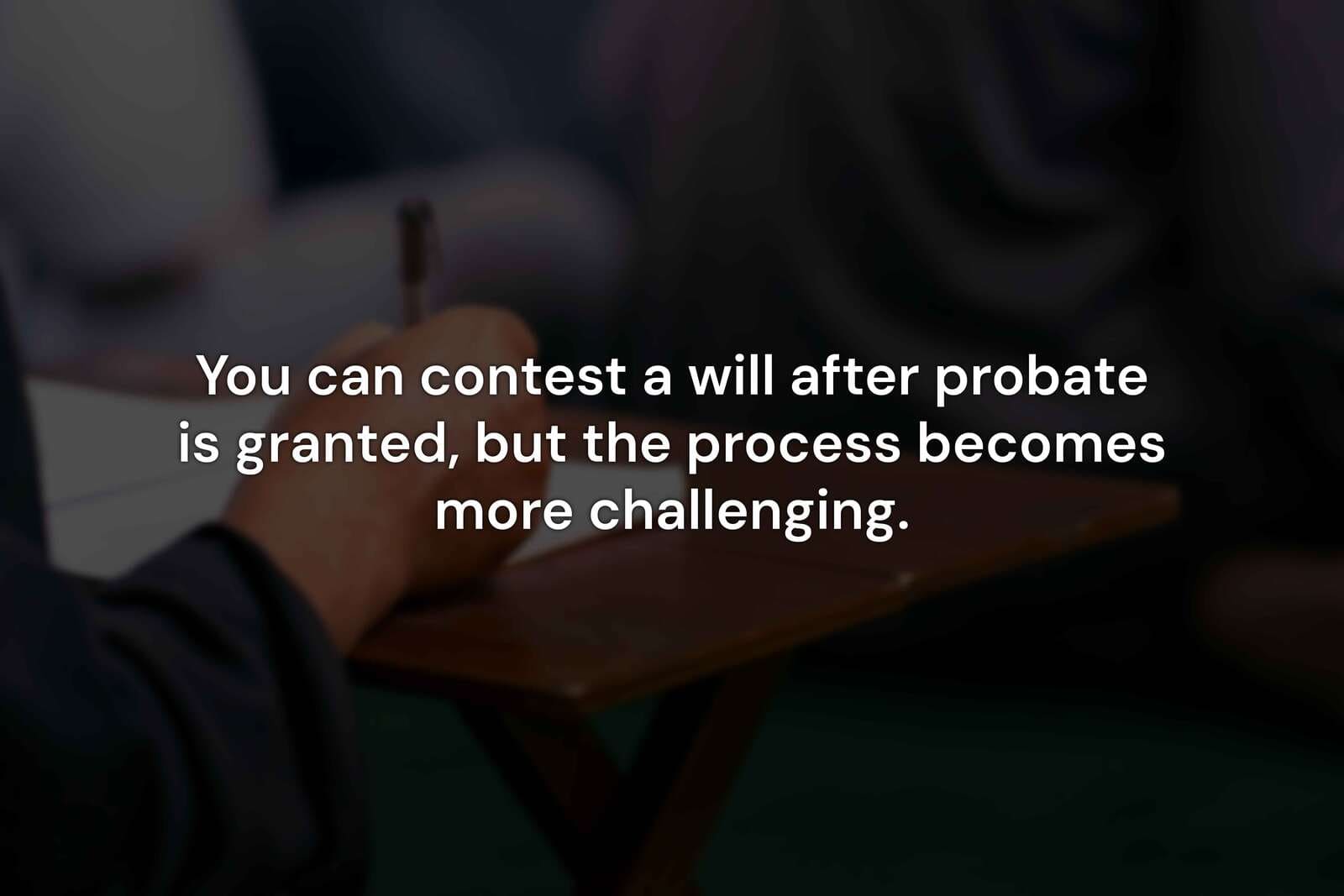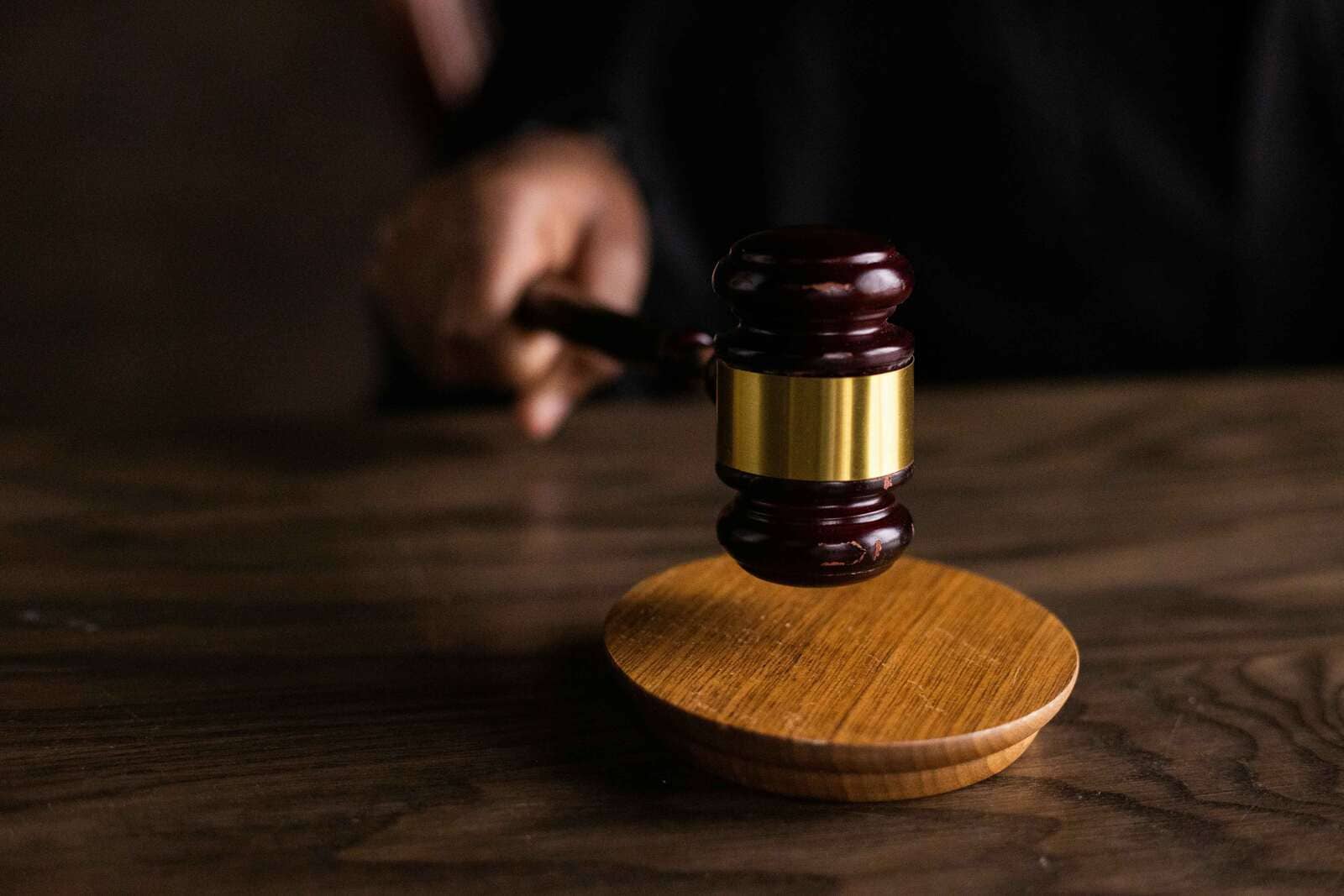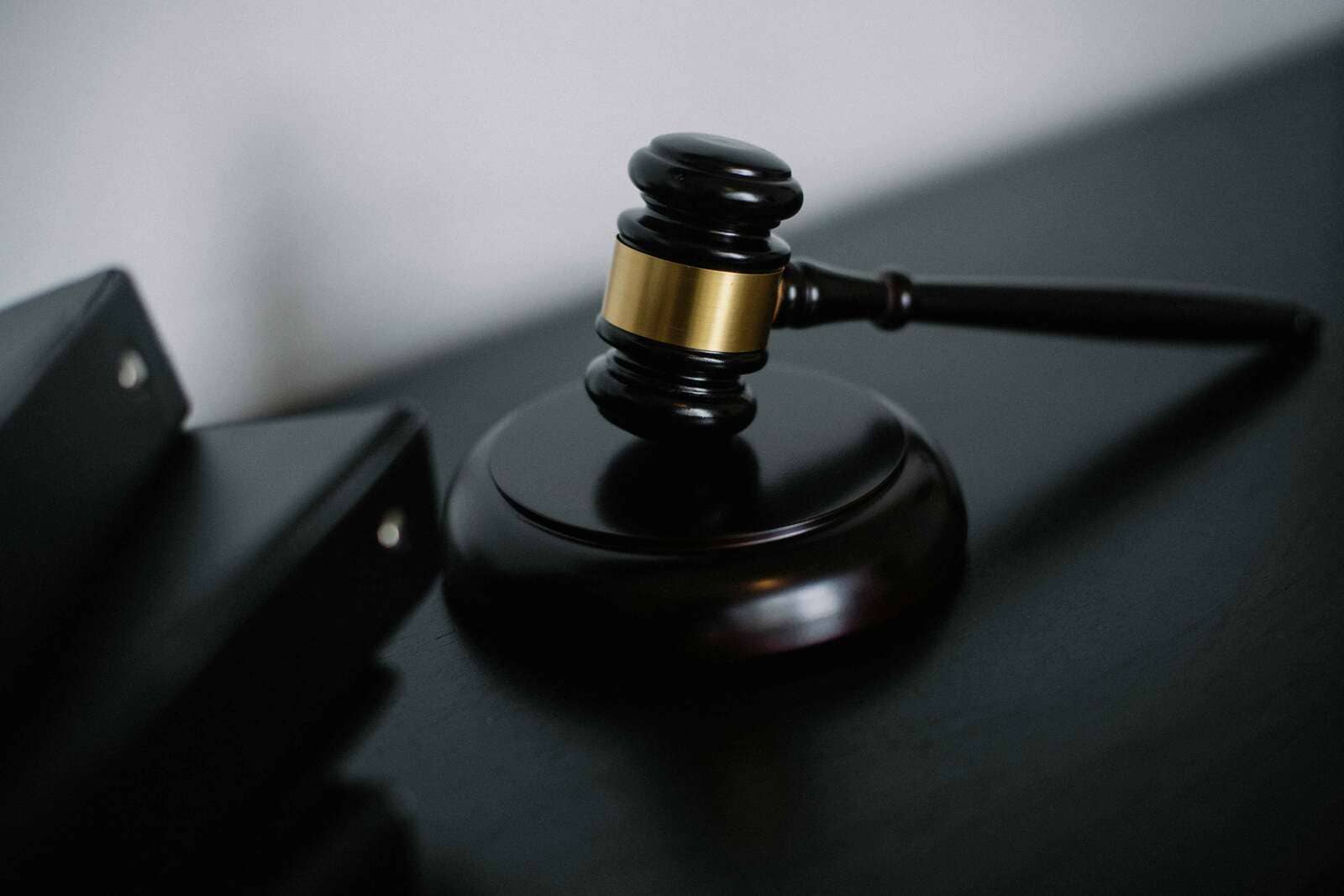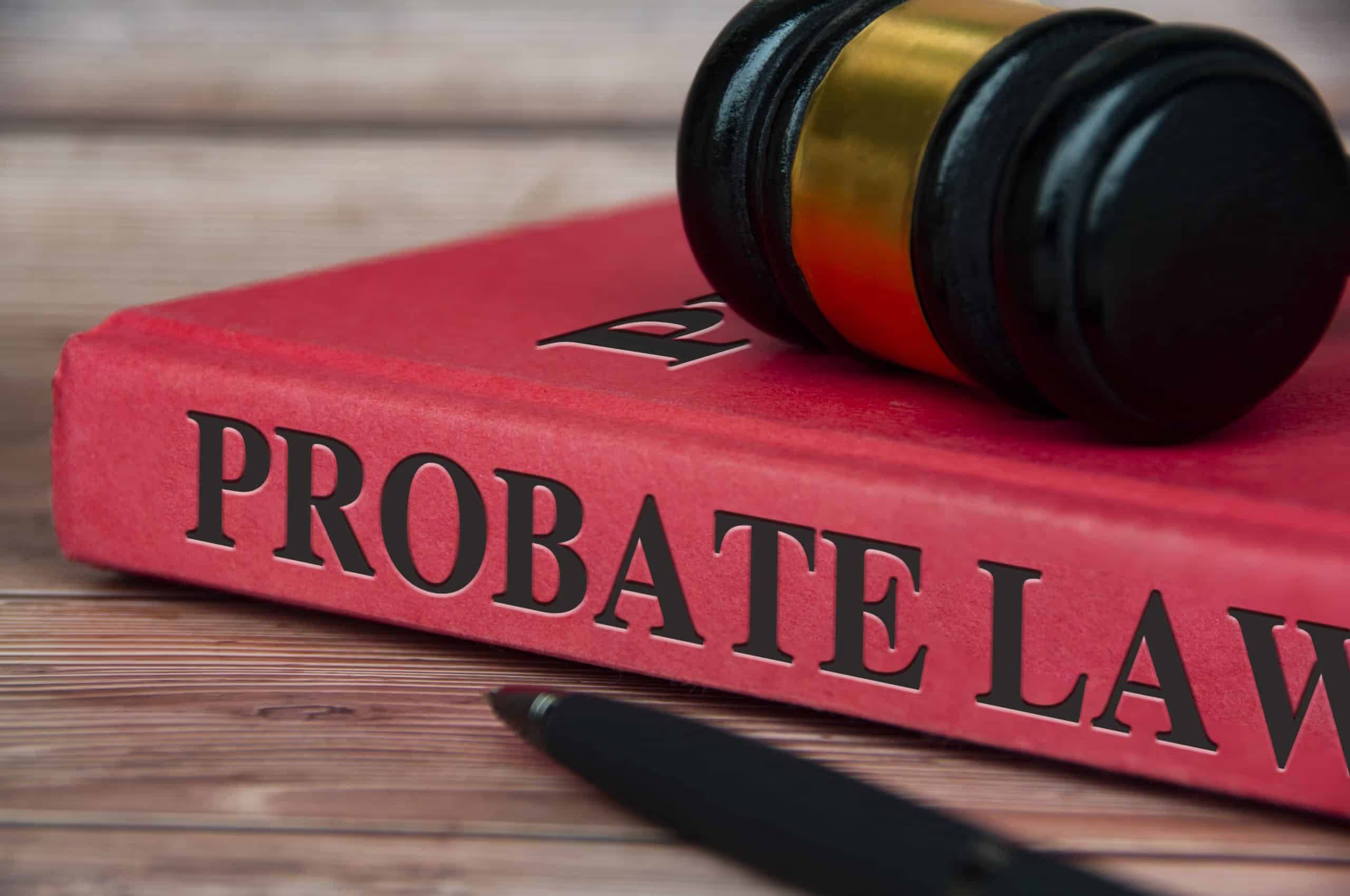You can contest a will after probate is granted, but the process becomes more challenging. Most states impose strict deadlines for filing a challenge, and the burden of proof is higher once the probate court has already accepted the will as valid. Acting quickly with a clear legal basis is critical to success.

Time Limits for Contesting a Will
Each state sets its own statute of limitations for will contests after probate begins. Deadlines can range from 30 days to 6 months after the will’s admission to probate. Missing the deadline usually means losing the right to challenge, regardless of the strength of your case.
Legal Grounds for Contesting
Courts require specific legal reasons to set aside a will after probate is granted. Common grounds include:
- Undue influence: Someone coerced the testator into making or changing the will in their favor.
- Lack of capacity: The testator did not have the mental capacity to understand what they were signing.
- Fraud or forgery: The will contains false information or was not actually signed by the testator.
- Improper execution: The will was not signed or witnessed according to state requirements.
- Newly discovered will: A more recent will that meets legal standards is found.
Burden of Proof
Once probate is granted, the will is presumed valid. The challenger must present strong, clear evidence to overcome this presumption. Courts require credible witnesses, expert testimony, and documentary proof to support the claim.

Risks of Contesting a Will
Will contests can delay distribution of assets, increase legal costs, and strain family relationships. Some wills include “no-contest” clauses that penalize beneficiaries who challenge unsuccessfully by reducing or eliminating their inheritance.
Steps to Contest After Probate Begins
- Consult an attorney immediately to confirm your legal standing and assess deadlines.
- File a petition in probate court stating your grounds for contesting.
- Gather evidence such as medical records, handwriting analysis, or witness statements.
- Attend hearings where both sides present evidence and arguments.
- Await the court’s decision, which could uphold, modify, or overturn the will.
Importance of Acting Quickly
Delay reduces your chances of success. Evidence can be lost, witnesses may become unavailable, and deadlines can expire before you file.

Role of a Probate Attorney
A skilled probate attorney can evaluate your case, gather necessary evidence, and navigate procedural rules. They can also advise whether contesting is worth the potential cost and time.
Strategic Considerations
Before filing, weigh:
- The likelihood of winning based on available evidence
- The potential impact of a no-contest clause
- The value of the inheritance at stake versus the legal costs
- The emotional and family consequences of litigation
Related Will and Probate Dispute Topics
Can a Beneficiary See the Will Before Probate?
Access to the will before probate depends on cooperation from the executor, but once filed, it becomes public record.
What Rights Do Beneficiaries Have During Probate?
Beneficiaries have rights to notice, information, and fair distribution, which can help them spot potential issues early.
Can a Beneficiary Stop the Sale of a Property?
In some cases, yes—especially if the sale violates the will or is not in the estate’s best interest.
What Happens if a Will is Contested in Probate Court?
The court examines all evidence and testimony before deciding whether to uphold, modify, or overturn the will.



























